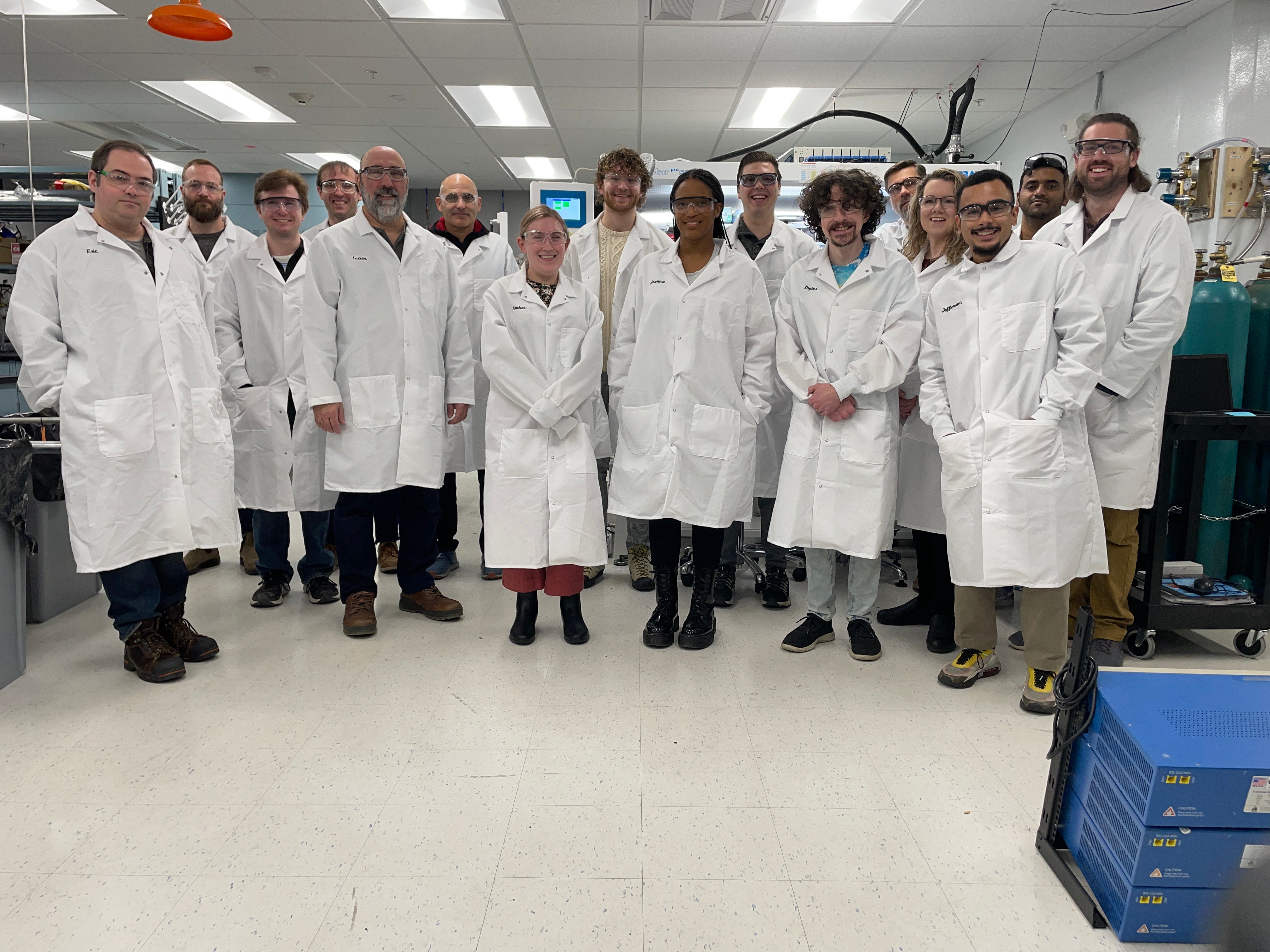‘I have a unique perspective’ – EV battery CEO speaks out about being trans in sustainability sector
‘It is not something that I can really hide from, nor do I want to’

Charlotte Hamilton is CEO and co-founder of battery technology company Conamix, which is developing sulphur cathodes to accelerate the global adoption of electric vehicles.
By using ubiquitous cathode materials — sulphur is widely used in fertiliser and is cheap and abundant — Charlotte claims battery costs could be slashed making electric vehicles more widely affordable.
The New Yorker transitioned her public gender while running Conamix, and spoke to the Independent about being a trans woman in a sector largely dominated by men.
What has been your experience being a trans person in the electric vehicle sector?
Charlotte: I am not shy about who I am. It is the nature of my personal story. I am transgender – I ran two start-ups with a different name and different legal gender.
It is not something that I can really hide from, nor do I want to. I had tremendous support from the team here. They always recognised me as who I am and that has been the most important part.
Women in leadership positions are not as common in the chemical, entrepreneurship, and venture capital-dominated industry.
I used to move with the most common set of characteristics that a CEO would have running a company like this: two Ivy League degrees, experience as a CEO, and I was a tall, male-presenting person.
Now I am doing that same thing as a woman, that’s the reality of it. Ultimately, the technology and the company speaks for themselves. I am here to help it move forward.

Have people across the sector been accepting of your transition?
I do have a unique perspective as I have business experience on two sides of the gender spectrum. Not many people, relatively speaking, can say that.
My own experience though has been part of driving cultural change and increased acceptance of different kinds of people moving in the world and running businesses. This cultural change is I think at a bit of a tipping point right now.
There’s lots to work on. It is intriguing and interesting that I have a different kind of diversity than most folks you may talk to about battery materials, but my diversity hasn’t been the focus of my conversations to date. The level of diversity in business is changing and I’m a small part of that change.
There are people that have come before me in business with all kinds of different diversity that have helped to normalise the vast spectrum of humanity. I am proud and count myself lucky to be part of that cultural change.
The West’s desire for electric vehicles has a huge toll on the developing world. These batteries are manufactured from various metals that must be mined. Pollution from these operations not only impacts oceans and ecosystems, but also creates health risks for workers due to the toxicity of heavy metals such as lithium. Is there blood on the hands of EV manufacturers? And to what extent can this problem be addressed?
I would say that blood on the hands is too strong a term. I think the move to electric vehicles is the global North’s response to actually improve and mitigate climate change.
So the huge mandates that you see by all the leading governments in Europe and several in North America are actually a drive to full ‘electrification’ of vehicles, specifically to mitigate global warming, to reduce the reliance on fossil fuels and the emissions of CO2.
What happens in the market, though, is that with these huge mandates and customer motivation to do the right thing, you have huge companies that are going to respond to those mandates and the customer demand and their own green goals by responding with what is the most available material and most ready material at that time to meet those demands.
Historically that has been traditional lithium ion relying on cobalt and nickel. That cobalt does have huge social impacts. Specifically in the Democratic Republic of Congo, and that the demand by the West for those new materials does increase the demand for that one specific chemical that’s in very limited and short supply. So early in the shift to electric vehicles, there is this demand for performance and materials that do have a social impact.
Ultimately, it’s a problem of the industrialised west and it’s a problem that can be solved by the technology developed by those same countries, which is to use much more abundant and economically viable materials that have a much lower impact.
So I think the second wave of true vehicle electrification can impact everyone that desires to reduce global warming or stop contributing to it by driving internal combustion engines exclusively. That second wave of technology driven by technology innovation at the world’s universities and start-ups can actually help mitigate this impact.
Can the current generation of electric vehicles be retrofitted to accommodate new batteries? Or does the technology in current cars need to evolve first?
It’s a great question, the technology of the chemistry within the batteries, is not really impacted by the power needs of the cars themselves.
Cars are designed to have drop in solutions for batteries, meaning if you have different chemistry that meets the performance spec, you could drop the new chemistry into those automotive designs.
This is because the chemistry affects the inside of the battery not the car itself. If you for example are driving the car on the road, you don’t care if it has cobalt or nickel or sulphur in the cathode. The car itself does not directly care about the chemistry so the existing designs of cars would absolutely work with the new designs of materials within the battery itself.
Now, we are years from the automotive partnerships that will have the scale that you can start testing our material with cars on the road. So with the existing cars you may or may not have driven to your grandma’s house over the weekend, that specific car will not see a battery with our technology in it. But a car that my daughter, for example, might drive in 2028-2029 could very well have our chemistry in it.
I think our chemistry with that cost and performance and the societal benefit – can indeed be the leading chemistry in all cars by 2035. If you want to make a huge difference in the world and replace something that will really change the chemistry. My entire career has been focused on this. It takes a long time to make a big difference.
Join our commenting forum
Join thought-provoking conversations, follow other Independent readers and see their replies
Comments
Bookmark popover
Removed from bookmarks